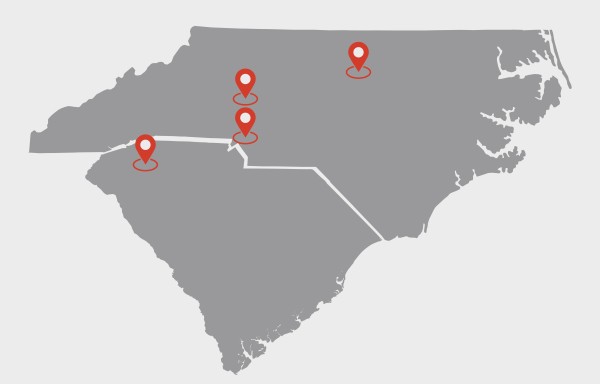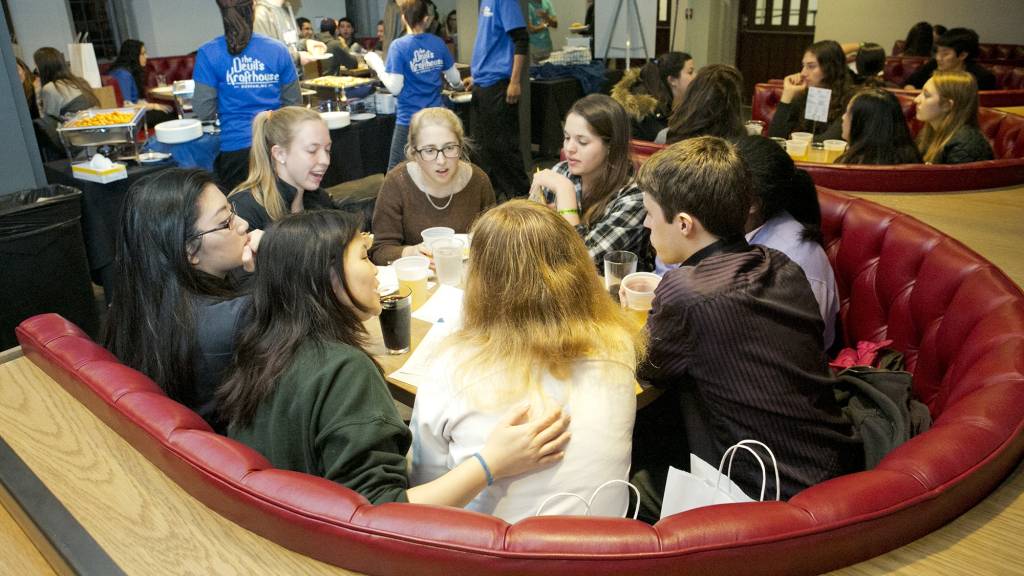Challenge
Over the past decade, the emotional health of college students has become an issue of national concern, and the COVID-19 pandemic has accelerated the need to focus on student well-being.
Over the past decade, the emotional health of college students has become an issue of national concern, and the COVID-19 pandemic has accelerated the need to focus on student well-being.
The Duke Endowment funded the Student Resilience and Well-Being Project across four college campuses to intensively study the issue of student resilience and to develop new interventions to test and refine.
The Student Resilience and Well-Being Project collected data on more than 6,600 variables across 11 waves of data collection from more than 2,000 students.
College is a one-of-a-kind opportunity. It also can be overwhelmingly stressful. In addition to the pressure of a competitive academic environment, many students worry about the cost, about fitting into a new environment or about family issues back home. While learning to manage stress is part of the experience, many students report extreme levels of anxiety, depression and other conditions that negatively affect their overall wellness and ability to succeed and thrive. These challenges can increase for students who are among the first in their families to attend college or who have experienced trauma or mental health challenges before arriving on campus. Over the past decade, the emotional health of college students has become an issue of national concern. The COVID-19 pandemic has accelerated the need to focus on student well-being.

In 2013, The Duke Endowment provided $3.4 million to the four institutions named in Mr. Duke’s Indenture of Trust — Davidson College, Duke University, Furman University and Johnson C. Smith University — to intensively study the issue of student resilience and to develop new interventions to test and refine.
The Student Resilience and Well-Being Project began with data collection across all four campuses to better understand the causes of student stress, how stress manifests itself, what tools students possess to deal with stress and become resilient, and where interventions to improve resiliency are most needed. Using this data (collected longitudinally from the Class of 2018 over four years) campus teams are designing and implementing new interventions and restructuring existing ones to help enhance resiliency.
The Student Resilience and Well-Being Project aimed to identify the factors that contribute to and mitigate student resilience, and to increase knowledge about the effectiveness of interventions designed to improve resiliency, and to share that knowledge among the four campuses and beyond. The study found that four key factors strengthen student resilience and well-being: self-control, academic engagement, self-compassion, and supportive and meaningful relationships.
Using these factors as a foundation, the project has already resulted in:
The Endowment has seen increased collaboration across and within the four schools, as well as an increased understanding of student resilience and promising intervention ideas. In addition, the study helped inform the schools’ responses to the COVID-19 crisis on campus.
In addition to working within their own campuses, the schools contributed to shared data collection and analysis, created joint studies and interventions, and shared findings and ideas. During the 2016 Student Resiliency Symposia at the Endowment’s headquarters, the four schools welcomed representatives from other colleges and universities to showcase their own resiliency efforts and participate in shared learning.

North Carolina
South Carolina
In addition to taking part in shared data collection and analysis, researchers and practitioners on each campus worked to develop interventions tailored to their particular campus culture and needs.
Davidson explored several interventions, including:
Davidson also was home to the Student Resilience and Well-Being Project’s summer research program, hosting two undergraduates from each of the four campuses to explore specific aspects of resilience and well-being through individual and joint research projects. Students studied a range of factors, from the effects of overusing electronic devices to the impact of social rejection.
Duke’s interventions focused on creating quality relationships with adults on campus, which research shows is a positive predictor of academic engagement and success. Duke also explored the negative effects of the Greek rush system and possible improvements to the process. Other areas of focus at Duke include:
Furman has named its resiliency effort The Fourtitude Project (four universities, four years, for you). Furman was one of the first schools to monitor stress and resiliency issues surrounding Greek life on campus and is exploring interventions to mitigate the social stress that increases during rush season.
In addition, Furman’s research shows that academic stress has a greater influence on mental health over time than does social stress. In 2016, Furman used data collected from the Student Resilience and Well-Being Project to create a pilot intervention that uses web-based tutorials and texting to give students skills to manage academic stress, such as goal-setting, “if-then” plans for obstacles, etc.
Insights from the resiliency study are contributing to The Furman Advantage, which creates pathways for students that combine classroom learning with real-world experiences and self-discovery.
As the only Historically Black College and University among the Endowment’s higher education grantees, JCSU provided a valuable perspective to the project. Intervention activities at JCSU included:
JCSU partnered with Furman to conduct a study of student physical health and resiliency. It also conducted its own ongoing studies, including the relationship between technology use and sleep quality, and the impact of problematic internet use on school connectedness.
The Student Resilience and Well-Being Project collected data on more than 6,600 variables across 11 waves of data collection from more than 2,000 students.
The project provided a rare opportunity for researchers on campuses to analyze and apply their own learning directly back to their campuses. As one said, “Doing research that will be used locally on campus is unheard of. Basic researchers never get to do this!”
Issues of resiliency are tied to perceptions of value when it comes to the college experience. The Gallup Purdue Index report shows key elements of the college experience that are powerful predictors of later thriving and well-being. For example:

The Student Resilience and Well-Being Project has produced several lessons, some about the nature of cross-campus research and others about resiliency and opportunities for intervention.
A five-year initiative to assess and promote the conditions that help college students flourish. Learn how four campuses in the Carolinas worked together to study college student resilience.